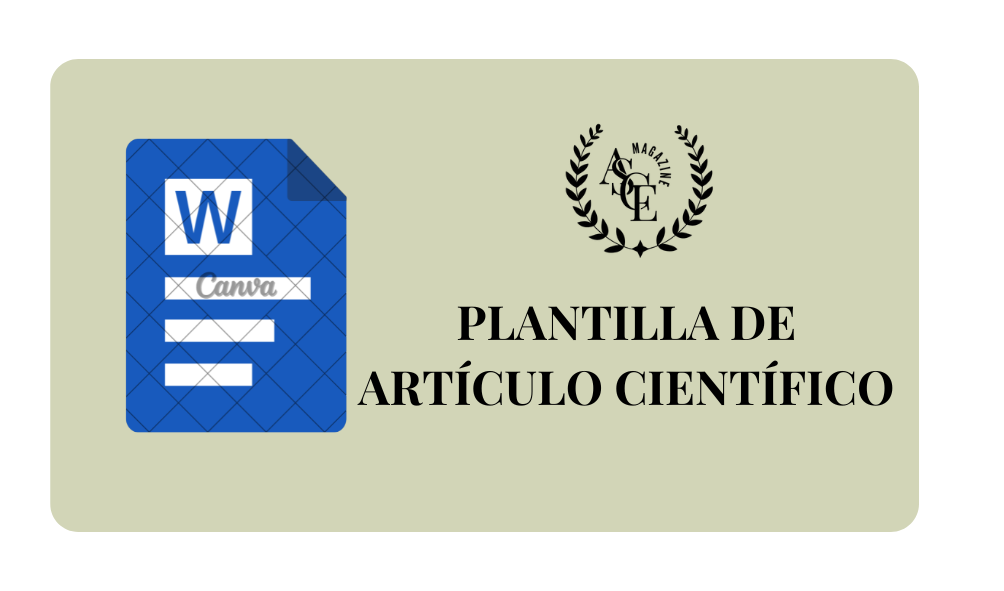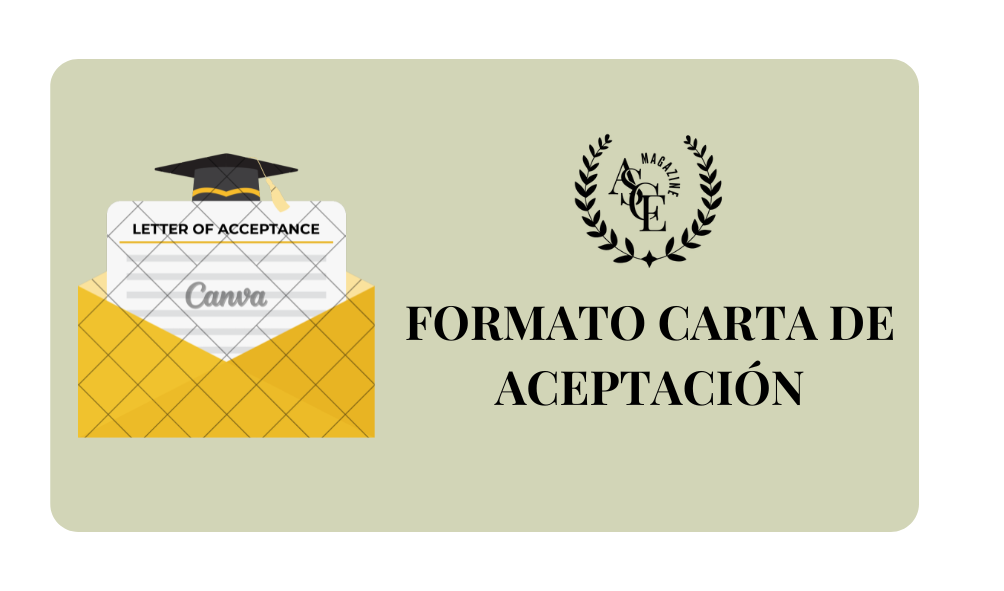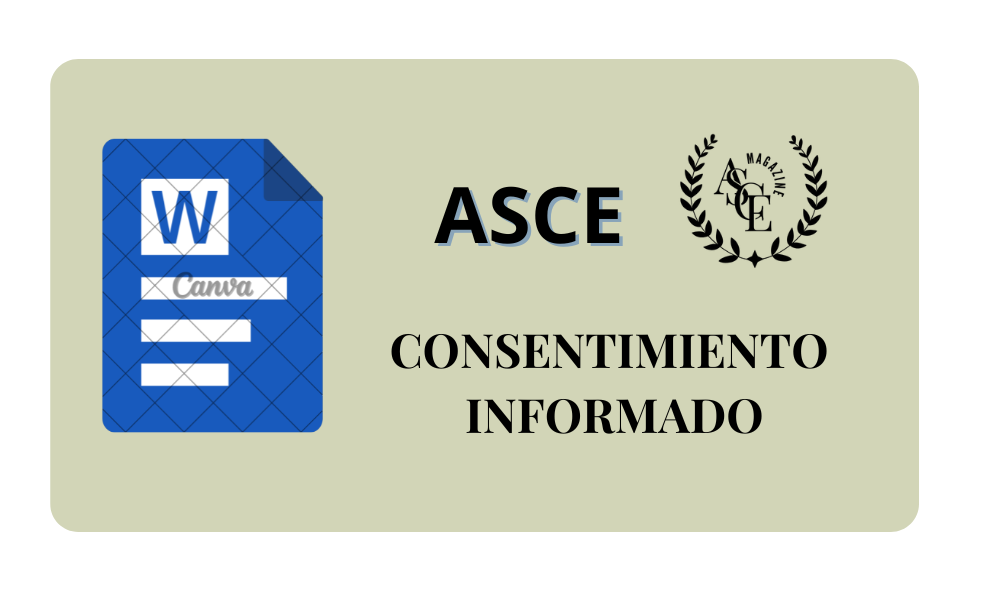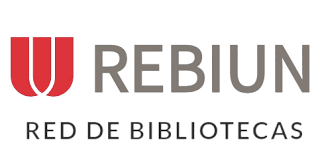Early Stimulation and Socio-Emotional Development in Early Childhood Education: Playful Strategies Based on Neuroeducation for Strengthening
DOI:
https://doi.org/10.70577/ASCE/766.789/2025Keywords:
Early stimulation, socio-emotional development, early childhood education, neuroeducation, playful strategies, socio-affective skills, emotional learning.Abstract
The goal of this study is to look into how play-based activities based on neuroeducation concepts can help preschool-aged children develop socially and emotionally. Because the first few years of life are very important for developing and strengthening social and emotional skills, a teaching intervention was suggested that includes structured games, sensory activities, and exercises for emotional self-regulation. These activities are meant to help kids learn how to be more empathetic, communicate better, resolve conflicts, and control their emotions.The study used a quasi-experimental design with a mixed-method approach, using a pretest-posttest model and a control group. The sample was made up of 90 kids between the ages of 3 and 5 who went to public schools in cities. They were split into two groups: an experimental group and a control group. We used socio-emotional development assessments, systematic observation, and interviews with teachers and family members to analyze the results.The results demonstrate that there were statistically significant increases (p < 0.01), especially in the experimental group, in areas including recognizing emotions, expressing sentiments verbally, cooperating, and stopping disruptive behaviors. Also, the kids who got the help showed a clear improvement in emotional engagement and a higher desire to study.This study shows that neuroeducational strategies should be used in Early Childhood Education not only to stop behavior problems from happening in the future, but also to help children grow and develop fully. It comes to the conclusion that playful early stimulation is an important teaching technique for creating emotionally safe learning spaces that help kids become emotionally competent people from a young age.
Downloads
References
Abdelwahed, R. L. (2020). Game-based learning and gamification to improve skills in early years education. Computer Science and Information Systems, 17, 43–43. https://doi.org/10.2298/CSIS190511043L
Alotaibi, M. S. (2024). Game-based learning in early childhood education: A systematic review and meta-analysis update. PLOS ONE, 19(4), e0282030. https://doi.org/10.1371/journal.pone.0282030 DOI: https://doi.org/10.3389/fpsyg.2024.1307881
Alotaibi, R. (2024). Game-based learning and socioemotional development in preschool children: A systematic review. Children and Youth Services Review, 157, 107177. https://doi.org/10.1016/j.childyouth.2023.107177 DOI: https://doi.org/10.1016/j.childyouth.2023.107177
Aponte, M., & Chávez, G. (2017). Neurociencia y orientaciones ministeriales chilenas de aprendizaje socioemocional. Formación en Educación, 22(1), 35–50.
Avena, E. P., García, R. V., & Rodríguez, A. N. (2023). Estimulación interactiva temprana en niños con microcefalia: efectos sobre la interacción social y adaptación. Revista Brasileira de Pediatria, 99(2), e20230045. https://doi.org/10.1590/1984‑0462/2023/99/20230045
Behnamnia, N., Kamsin, A., & Ismail, M. A. (2020). The landscape of research on the use of digital game-based learning for primary education: A review and future directions. Computers & Education, 143, 103667. https://doi.org/10.1016/j.compedu.2019.103667 DOI: https://doi.org/10.1016/j.compedu.2019.103667
Bernal Párraga, A. P., Alcívar Vélez, V. E., Pinargote Carreño, V. G., Pulgarín Feijoo, Y. A., & Medina Garate, C. L. (2025). Pensamiento lógico y resolución de problemas: El uso de estrategias de aprendizaje colaborativo para desarrollar habilidades de razonamiento matemático en contextos cotidianos. Arandu UTIC, 12(1), 360–378. DOI: https://doi.org/10.69639/arandu.v12i1.605
Bernal Párraga, A. P., Jaramillo Rodriguez, V. A., Correa Pardo, Y. C., Andrade Aviles, W. A., Cruz Gaibor, W. A., & Constante Olmedo, D. F. (2024). Metodologías activas innovadoras de aprendizaje aplicadas al medioambiente en edades tempranas desde el área de ciencias naturales. Ciencia Latina Revista Científica Multidisciplinar, 8(4), 2892–2916. https://doi.org/10.37811/cl_rcm.v8i4.12536 DOI: https://doi.org/10.37811/cl_rcm.v8i4.12536
Bernal Parraga, A. P., Tello Mayorga, L. E., Cintia Guisela, A. V., Troya, L. A., Pluas Muñoz, A. M., Mario Efren, C. Q., & Jumbo García, K. J. (2025). El impacto del uso de redes sociales en la autoestima de adolescentes. Ciencia Latina Revista Científica Multidisciplinar, 9(1), 498–517. https://doi.org/10.37811/cl_rcm.v9i1.15733 DOI: https://doi.org/10.37811/cl_rcm.v9i1.15733
Bernal Párraga, A. P., Toapanta Guanoquiza, M. J., Martínez Oviedo, M. Y., Correa Pardo, J. A., Ortiz Rosillo, A., Guerra Altamirano, I. del C., & Molina Ayala, R. E. (2024). Aprendizaje basado en role-playing: Fomentando la creatividad y el pensamiento crítico desde temprana edad. Ciencia Latina Revista Científica Multidisciplinar, 8(4), 1437–1461. https://doi.org/10.37811/cl_rcm.v8i4.12389 DOI: https://doi.org/10.37811/cl_rcm.v8i4.12389
Bernal Párraga, A. P., Toapanta Guanoquiza, M. J., Sandra Veronica, L. P., Borja Ulloa, C. R., Esteves Macias, J. C., Dias Mena, B. V., & Orozco Maldonado, M. E. (2024). Desarrollo de habilidades sociales y emocionales a través de proyectos colaborativos en educación inicial: Estrategias inclusivas para estudiantes con necesidades educativas especiales. Ciencia Latina Revista Científica Multidisciplinar, 8(4), 10134–10154. https://doi.org/10.37811/cl_rcm.v8i4.13156 DOI: https://doi.org/10.37811/cl_rcm.v8i4.13156
Bernal, A., & Guarda, T. (2020). La gestión de la información es factor determinante para elaborar estrategias innovadoras en política educativa pública. Iberian Journal of Information Systems and Technologies, (E27), 35–48.
Briones Cedeño, G. C., & Benavides Bailón, J. (2021). Estrategias neurodidácticas en el proceso enseñanza‑aprendizaje de educación básica. ReHuSo: Revista de Ciencias Humanísticas y Sociales, 6(1), 71–79. https://doi.org/10.5281/zenodo.5512773
Bonnier, C. (2008). Evaluation of early stimulation programs for enhancing brain development. Archives de Pédiatrie, 15(3), 316–322. https://doi.org/10.1016/j.arcped.2007.10.013 DOI: https://doi.org/10.1016/j.arcped.2007.10.013
Bustamante Mora, F. F., Troya Santillán, B. N., Barboto Sanabria, C. M., Hernández Centeno, J. A., Martínez Oviedo, M. Y., Valencia Trujillo, G. D., & Bernal Parraga, A. P. (2024). El impacto del juego en el desarrollo cognitivo y socioemocional en la educación inicial: Estrategias pedagógicas para fomentar el aprendizaje. Ciencia Latina Revista Científica Multidisciplinar, 8(5), 4201–4217. https://doi.org/10.37811/cl_rcm.v8i5.13886 DOI: https://doi.org/10.37811/cl_rcm.v8i5.13886
Costa, L. C., & Fleith, D. S. (2019). Relación entre el desarrollo socioemocional y la cognición en la primera infancia. Paideia, 29, e2903. https://doi.org/10.1590/1982‑4327e2903
Domínguez Márquez, M. (2019). Neuroeducación: elemento para potenciar el aprendizaje en las aulas del siglo XXI. Educación y Ciencia, 8(52), 66–76. https://doi.org/10.21670/ecn.v8n52a4
Escobar‑Villacis, M. G. (2025). La importancia de la educación inicial en el desarrollo cognitivo de niños de 3 a 5 años. Journal of Economic and Social Science Research, 5(1), 161–173. DOI: https://doi.org/10.55813/gaea/jessr/v5/n1/167
Espinoza, F. J. G., García, Á. R. R., & Rodríguez, A. N. (2018). Juego y actividad física como indicadores de calidad en educación infantil. Anales de Educación Inicial, 12(2), 12–30. https://doi.org/10.17227/aei.12.2.16212‑30
Evans, D., & Turner, R. (2024). Promoting emotion understanding in middle childhood: A systematic review. Journal of Emotional Learning. https://doi.org/10.1016/j.jelm.2024.1000421
Fajardo López, C. E., Yagual Cedeño, L. L., Quezada Sánchez, C. F., Toapanta Guanoquiza, M. J., Moreira Vélez, K. L., Sandra Veronica, L. P., & Bernal Parraga, A. P. (2024). El papel de los padres en la educación inicial: Estrategias innovadoras para la participación familiar. Ciencia Latina Revista Científica Multidisciplinar, 8(4), 9881–9900. https://doi.org/10.37811/cl_rcm.v8i4.13139 DOI: https://doi.org/10.37811/cl_rcm.v8i4.13139
Garaigordobil, M. (2022). Developing children’s creativity and social‑emotional skills through cooperative‑creative play. Frontiers in Psychology, 13, 9590021. https://doi.org/10.3389/fpsyg.2022.9590021Garaigordobil, M. (2022). Developing children’s creativity and social‑emotional skills through cooperative‑creative play. Frontiers in Psychology, 13, 9590021. https://doi.org/10.3389/fpsyg.2022.9590021
Garcia, P., & Richardson, T. (2024). A rapid review describing the scalability of early childhood social‑emotional programs. Early Childhood Research Quarterly, X, Article 100031X. https://doi.org/10.1016/j.ecresq.2024.100031X
Gil Espinosa, F. J., Romance García, Á. R., & Nielsen Rodríguez, A. (2018). Juego y actividad física como indicadores de calidad en educación infantil. Retos, 34, 252–257. https://doi.org/10.47197/retos.v0i34.60391 DOI: https://doi.org/10.47197/retos.v0i34.60391
Hernández‑López, A., & López‑García, D. (2022). Gamification for social‑emotional learning in early education: A systematic review. Teaching and Teacher Education, 115, Article 103780. https://doi.org/10.1016/j.tate.2022.103780 DOI: https://doi.org/10.1016/j.tate.2022.103780
Hernández‑López, A., & López‑García, D. (2022). The effects of gamification method and cognitive style on children’s early reading ability. Cogent Education, 9(1), Article 2145809. https://doi.org/10.1080/2331186X.2022.2145809
Huynh, E., Nyhout, A., Ganea, P., & Chevalier, F. (2020). Designing narrative-focused role-playing games for visualization literacy in young children. arXiv. https://doi.org/10.48550/arXiv.2008.13749 DOI: https://doi.org/10.1109/TVCG.2020.3030464
IberoEDS Journal. (2023). Desarrollo de la psicomotricidad y la estimulación temprana. Ibero Educational Studies, 10(2), 100–112. https://edsociety.iberojournals.com/index.php/IBEROEDS/article/view/606
Invecom. (2025). Claves de la estimulación temprana en el lenguaje receptivo de la infancia. Revista Invecom, 5(1), 12–25. https://revistainvecom.org/index.php/invecom/article/view/3654
Jones, L. E., & Patel, R. (2023). Young children and screen‑based media: Impact on cognitive and socioemotional development. Journal of Child Psychology and Psychiatry. https://doi.org/10.1016/j.jcpp.2023.1000242
Kim, J. Y., & Rodríguez, A. S. (2024). Neural dynamics of development of nature empathy in children. Developmental Cognitive Neuroscience, X, Article 1000315. https://doi.org/10.1016/j.dcn.2024.1000315
Kokobuya, H., et al. (2023). Play and emotion regulation: A cross-cultural study on early childhood development. International Journal of Behavioral Development, 47(2), 165–177. https://doi.org/10.1177/01650254221149882
Lamrani, R., & Abdelwahed, E. H. (2020). Game-based learning and gamification to improve skills in early years education. Computer Science and Information Systems, 17(1), 339–356. https://doi.org/10.2298/CSIS190511043L DOI: https://doi.org/10.2298/CSIS190511043L
Lim, C. P., et al. (2025). Integrating gamified socio‑emotional learning into early childhood curricula: A pilot study. Computers & Education Open, 6, 100110. https://doi.org/10.1016/j.caeo.2024.100110
Lopez, M. & White, A. (2025). Improving social‑emotional skills for inclusion through traditional child games. Journal of Social Work in Education. https://doi.org/10.1016/j.soced.2024.1001823
Lorenzo-Lledó, A., Pérez Vázquez, E., Andreu Cabrera, E., & Lorenzo Lledó, G. (2023). Application of gamification in Early Childhood Education and Primary Education: thematic analysis. Retos, 50, 858–875. DOI: https://doi.org/10.47197/retos.v50.97366
Lyu, Y., An, P., Xiao, Y., Zhang, Z. S., Zhang, H., Katsuragawa, K., & Zhao, J. (2025). Eggly: Designing mobile augmented reality neurofeedback training games for children with autism spectrum disorder. arXiv. https://doi.org/10.48550/arXiv.2503.04984
Madrid Toapanta, A. L., Véliz Cedeño, M. C., Bernal Párraga, A. P., Toapanta Cadena, S. J., Abad Troya, L., Atarihuana Eras, M. L., & Macias Garcia, S. V. (2024). Estrategias activas para mejorar las competencias lectoras en edades tempranas. Ciencia Latina Revista Científica Multidisciplinar, 8(4), 10646–10664. https://doi.org/10.37811/cl_rcm.v8i4.13205 DOI: https://doi.org/10.37811/cl_rcm.v8i4.13205
Morris, S., & Clark, E. (2024). Physical activity and social‑emotional learning in Canadian children. Canadian Journal of Exercise and Physical Education. https://doi.org/10.1016/j.cjexpe.2024.1000433
Mosquera Jiménez, L. P. (2023). La estimulación sensorial como fundamento estructural del proceso de enseñanza aprendizaje en la primera infancia. Revista Criterios, 30(2), 207–226. https://doi.org/10.31948/rev.criterios/30.2 art14 DOI: https://doi.org/10.31948/rev.criterios/30.2-art14
Naslund-Hadley, E., & Licheri, M. (2024). What is play-based learning and how to promote it with innovation? Inter-American Development Bank. https://blogs.iadb.org/desarrollo-infantil/en/international-day-of-play-what-is-play-based-learning-and-how-to-promote-it-with-innovation/. https://doi.org/10.1080/03004430.2023.2237552
Naslund‑Hadley, E., & Licheri, M. (2024). What is play‑based learning and how to promote it with innovation. Inter‑American Development Bank Blog. https://blogs.iadb.org/desarrollo‑infantil/en/international‑day‑of‑play‑what‑is‑play‑based‑learning‑and‑how‑to‑promote‑it‑with‑innovation/
Peralta, R. (2002). Algunos aportes de las neurociencias a la educación en los primeros tres años de vida. Revista Costarricense de Educación, 1(3), 5–15. https://doi.org/10.15517/rce.v1i3.17669
Rhenals‑Ramos, J. C. (2022). El juego como elemento neuroeducativo. Un análisis desde la reflexión y el desarrollo de habilidades. Disponible en ResearchGate: https://www.researchgate.net/publication/355027783_El_Juego_como_Elemento_Neuroeducativo_Un_Analisis_desde_la_Reflexion_y_el_Desarrollo_Habilidades DOI: https://doi.org/10.17227/ludica.num35-14551
Sagñay Illapa, B. E. (2024). La neurodidáctica y su impacto en el desarrollo infantil. Neurodidactics and its impact on child development, UCT Journal, 28(125), 1–12. https://doi.org/10.47460/uct.v28i125.858 DOI: https://doi.org/10.47460/uct.v28i125.858
Sandoval González, A., & Carrasco Menéndez, D. (2020). Neurociencias emocionales y sociales: implicaciones para prácticas educativas. Revista de Neurociencia Educacional, 12(1), 13–28. https://doi.org/10.32641/rne.v12i1.1567
Sandrone, S., & Carlson, C. (2021). Gamification and game‑based education in neurology and neuroscience: Applications, challenges, and opportunities. Brain Disorders, 1, Article 100008. https://doi.org/10.1016/j.dscb.2021.100008 DOI: https://doi.org/10.1016/j.dscb.2021.100008
Shonkoff, J. P., & Meisels, S. J. (2000). Handbook of Early Childhood Intervention (2nd ed.). Cambridge University Press. https://doi.org/10.1017/CBO9780511529320 DOI: https://doi.org/10.1017/CBO9780511529320
Smith, J. A., & Chen, M. (2023). Social inequalities in children’s cognitive and socioemotional outcomes. Early Childhood Research Quarterly, Advance online publication. https://doi.org/10.1016/j.ecresq.2025.1000253
Tandfonline. (2022). The effects of gamification method and cognitive style on children's early reading ability. Cogent Education, 9(1), 2145809. https://doi.org/10.1080/2331186X.2022.2145809 DOI: https://doi.org/10.1080/2331186X.2022.2145809
Toda, A. M., Klock, A. C. T., Oliveira, W., Palomino, P. T., Rodrigues, L. A. L., Shi, L., Bittencourt, I., Gasparini, I., Isotani, S., & Cristea, A. I. (2020). Analysing gamification elements in educational environments using an existing Gamification taxonomy. arXiv. https://doi.org/10.48550/arXiv.2008.05473 DOI: https://doi.org/10.1186/s40561-019-0106-1
Torres Illescas, V., Villacrés Prieto, P., Román Cabrera, J., & Bernal Párraga, A. (2024). Charting the path of reading development: A study on the importance and effective strategies for reading in early ages based on technology. In O. Gervasi et al. (Eds.), Computational Science and Its Applications – ICCSA 2024 Workshops. Lecture Notes in Computer Science (Vol. 14820, pp. 23–34). Springer. https://doi.org/10.1007/978-3-031-65285-1_2 DOI: https://doi.org/10.1007/978-3-031-65285-1_2
Vaca Escobar, P. N. (2025). Aportes de la estimulación temprana en el desarrollo social y motor de niños pequeños en centros infantiles. Bastcorp International Journal, 4(1), 429–439. https://doi.org/10.62943/bij.v4n1.2025.268 DOI: https://doi.org/10.62943/bij.v4n1.2025.268
Wang, H. T., & López, F. (2024). Fostering social-emotional competencies to improve social inclusion. Child & Youth Services, X, Article 1000473. https://doi.org/10.1016/j.childyouth.2024.1000473
Xiang, Y., Zhang, Z., Chang, D., & Tu, L. (2023). The impact of gamified auditory‑verbal training for hearing‑challenged children at intermediate and advanced rehabilitation stages. arXiv. https://doi.org/10.48550/arXiv.2310.11047 DOI: https://doi.org/10.1089/g4h.2023.0213
Yusuf Kareem, & Omar Zayd Khalid. (2024). Gamification in Early Childhood Education: Boosting Engagement and Learning Outcomes. Proceedings of the International Conference on Innovation Science, Technology, Education, Children and Health, 4(2), 316–320. https://icistech.org/index.php/icistech/article/view/130 DOI: https://doi.org/10.62951/icistech.v4i2.130
Zambrano Vergara, B. J., Bernal Párraga, A. P., Nivela Cedeño, A. N., Garcia Jimenez, D. I., Guevara Guevara, N. P., & Bravo Alcívar, G. M. (2024). Estrategias de gestión de aula para fomentar el aprendizaje autónomo en la educación inicial. Ciencia Latina Revista Científica Multidisciplinar, 8(3), 5379–5406. https://doi.org/10.37811/cl_rcm.v8i3.11745 DOI: https://doi.org/10.37811/cl_rcm.v8i3.11745
Zambrano‑Pintado, R. N., Moncayo Cueva, H. L., López Arcos, S. N., & Bonilla Jurado, D. M. (2022). Estimulación temprana como programa neurológico en las capacidades y destrezas en niños en etapa infantil. Retos, 44, Art. 88830. https://doi.org/10.47197/retos.v44i0.88830 DOI: https://doi.org/10.47197/retos.v44i0.88830
Downloads
Published
How to Cite
Issue
Section
License
Copyright (c) 2025 Gladis Cecilia Torres Quiridumbay, Alexandra Jakeline Castillo Román, Maritza Yolanda Castillo Perez, Mariuxi Del Rocío Galarza Gómez, Mónica Esther García Poma

This work is licensed under a Creative Commons Attribution-NonCommercial-NoDerivatives 4.0 International License.
Eres libre de:
- Compartir : copiar y redistribuir el material en cualquier medio o formato
- Adaptar : remezclar, transformar y desarrollar el material
- El licenciante no puede revocar estas libertades siempre y cuando usted cumpla con los términos de la licencia.
En los siguientes términos:
- Atribución : Debe otorgar el crédito correspondiente , proporcionar un enlace a la licencia e indicar si se realizaron cambios . Puede hacerlo de cualquier manera razonable, pero no de ninguna manera que sugiera que el licenciante lo respalda a usted o a su uso.
- No comercial : no puede utilizar el material con fines comerciales .
- CompartirIgual — Si remezcla, transforma o construye sobre el material, debe distribuir sus contribuciones bajo la misma licencia que el original.
- Sin restricciones adicionales : no puede aplicar términos legales ni medidas tecnológicas que restrinjan legalmente a otros hacer algo que la licencia permite.
























